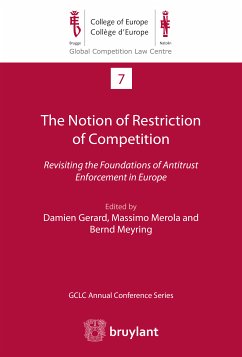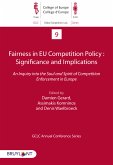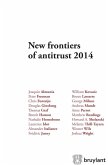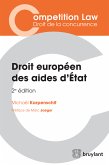While not ignoring institutional constraints, this volume revisits the notion of restriction of competition in the framework of Articles 101 and 102 TFEU with a view to taking stock of recent developments, to identifying common trends and to informing the application of core EU antitrust principles in current market contexts.
Associating lawyers and economists, practitioners and academics, it seeks both to revisit long-standing theories of harm to competition and to explore novel forms of antitrust concerns.
Dieser Download kann aus rechtlichen Gründen nur mit Rechnungsadresse in A, B, CY, D, EW, E, FIN, F, GR, IRL, I, L, M, NL, P, SLO, SK ausgeliefert werden.









